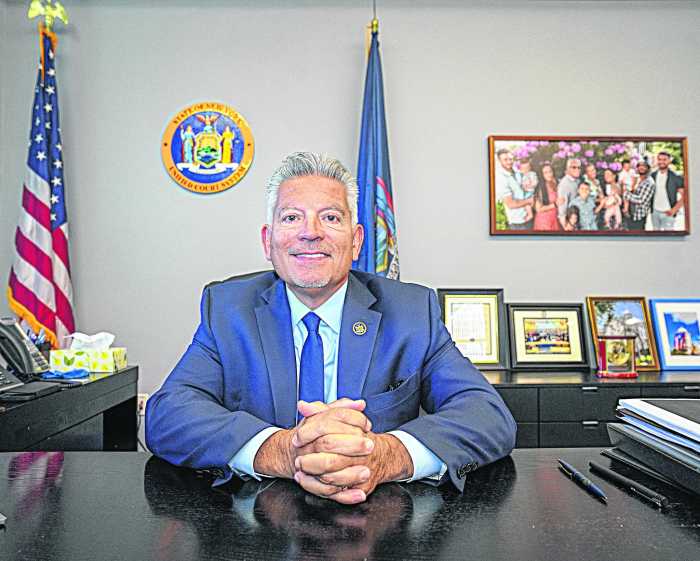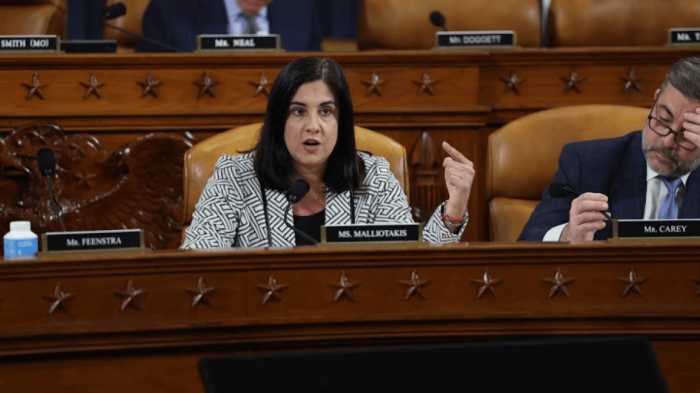As the home to world-class universities conducting cutting-edge research, industries rapidly adapting as technology evolves, and a thriving startup scene attracting record investment, New York is quickly becoming a global hub for artificial intelligence. Building on these strengths, the state is investing heavily to remain at the forefront of AI innovation through Gov. Kathy Hochul’s Empire AI consortium — a nation-leading public–private partnership with the mission of advancing development for the public good.
But Gov. Hochul now faces a decision with major implications for New York’s standing in the AI revolution. The RAISE Act, a well-intentioned but misguided bill passed in Albany earlier this year, risks driving developers and investors to less restrictive states. As written, it could even disrupt how academic institutions partner with industry leaders on AI-powered breakthroughs in areas like cancer treatment.
Earlier this month, Google DeepMind announced that through a collaboration with Yale University, it identified “a promising new pathway for developing therapies to fight cancer.” At the same time, OpenAI announced earlier this year that it is partnering with 15 research institutions nationwide to accelerate research and transform AI education. Surely our state policymakers don’t want to subject vital research like this to enormous new liabilities, delay deployment of game-changing AI models as they await government approval, or make researchers think twice before choosing to partner with New York-based academic researchers.
New York City’s startup ecosystem attracted $28.5 billion in venture capital in 2024, making it the nation’s second-largest market after Silicon Valley, according to the State Comptroller. The Big Apple’s woman-founded companies raised $955 million, outperforming San Francisco during the twelve-month period ending June 2025. Much of that surge has been fueled by AI, which now accounts for nearly half of all venture funding nationwide.
As an educator, I see how this growth begins in the classroom and in our research programs. Our institutions of higher learning are the backbone of New York’s innovation economy — training students, preparing future entrepreneurs, and advancing the discoveries that shape tomorrow’s breakthroughs. Whether it’s uncovering new medical treatments, improving government efficiency, identifying accounting errors, or modernizing disaster preparedness, this work depends on a policy environment that supports collaboration between universities and private industry — not one that pushes it into a legal gray area.
The RAISE Act’s vague terms could discourage researchers from testing or launching innovative AI tools for fear of crossing an unclear legal line. Worse, it could upend the entire ecosystem by imposing new liabilities on developers when open-source models are repurposed by third parties. To manage risks far beyond their control, top developers may reduce or suspend access to open-source tools, stifling experimentation and slowing innovation. While the bill includes an academic carveout, its ambiguous language fails to clearly protect the kinds of academic–industry partnerships that generate commercial applications — threatening the success of Empire AI and similar collaborations. Indeed, a law meant to promote accountability could instead chill the innovation New York is investing so heavily to nurture.
AI is already reshaping how we teach, learn, and work. Universities like Syracuse are developing ways to enhance students’ ability to leverage AI tools to solve problems and increase their productivity. Startups are using those same capabilities to build AI-powered solutions in healthcare, manufacturing, and finance. They’re strengthening local economies, attracting investment in our cities from Buffalo to the Bronx, and creating high-value jobs.
To sustain that progress, New York needs clear, consistent, pro-growth policies that encourage innovation while safeguarding accountability. That means supporting academic–industry collaboration, protecting open-source research, and ensuring that regulation keeps pace with technology rather than suppressing it. We already have laws that protect consumers from many of the harms policymakers worry about.
New York has the universities, entrepreneurs, investment, and talent to lead in AI. The question is whether policy will empower that leadership or keep us stagnant. As Hochul has said, whoever leads in AI will lead in the next era of human history. With so much at stake, lawmakers should resist the urge to act rashly with suffocating regulations.
Cameron D. Miller is associate professor of management at Syracuse University’s Whitman School of Management and Fellow at the Institute for an Entrepreneurial Society.






































